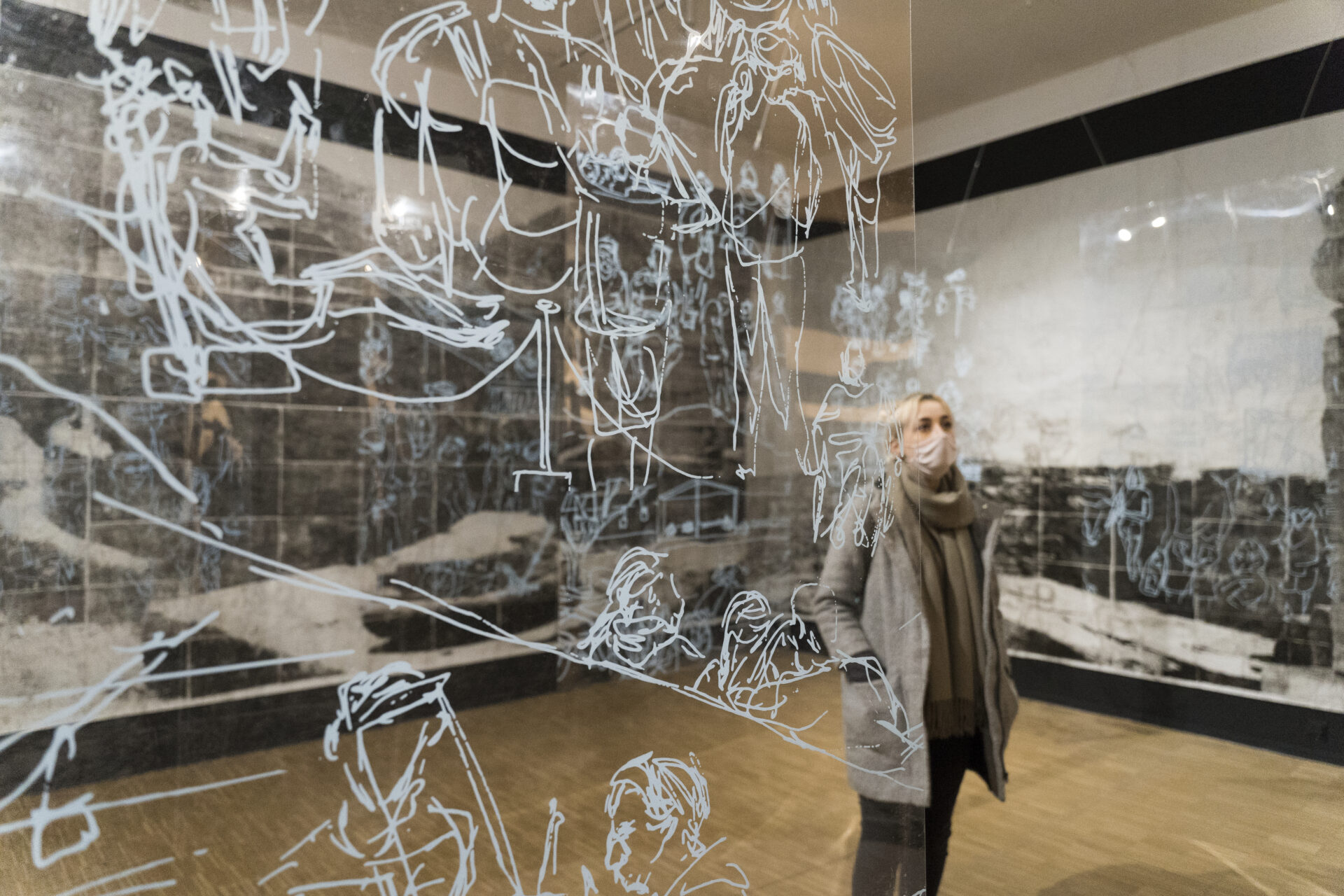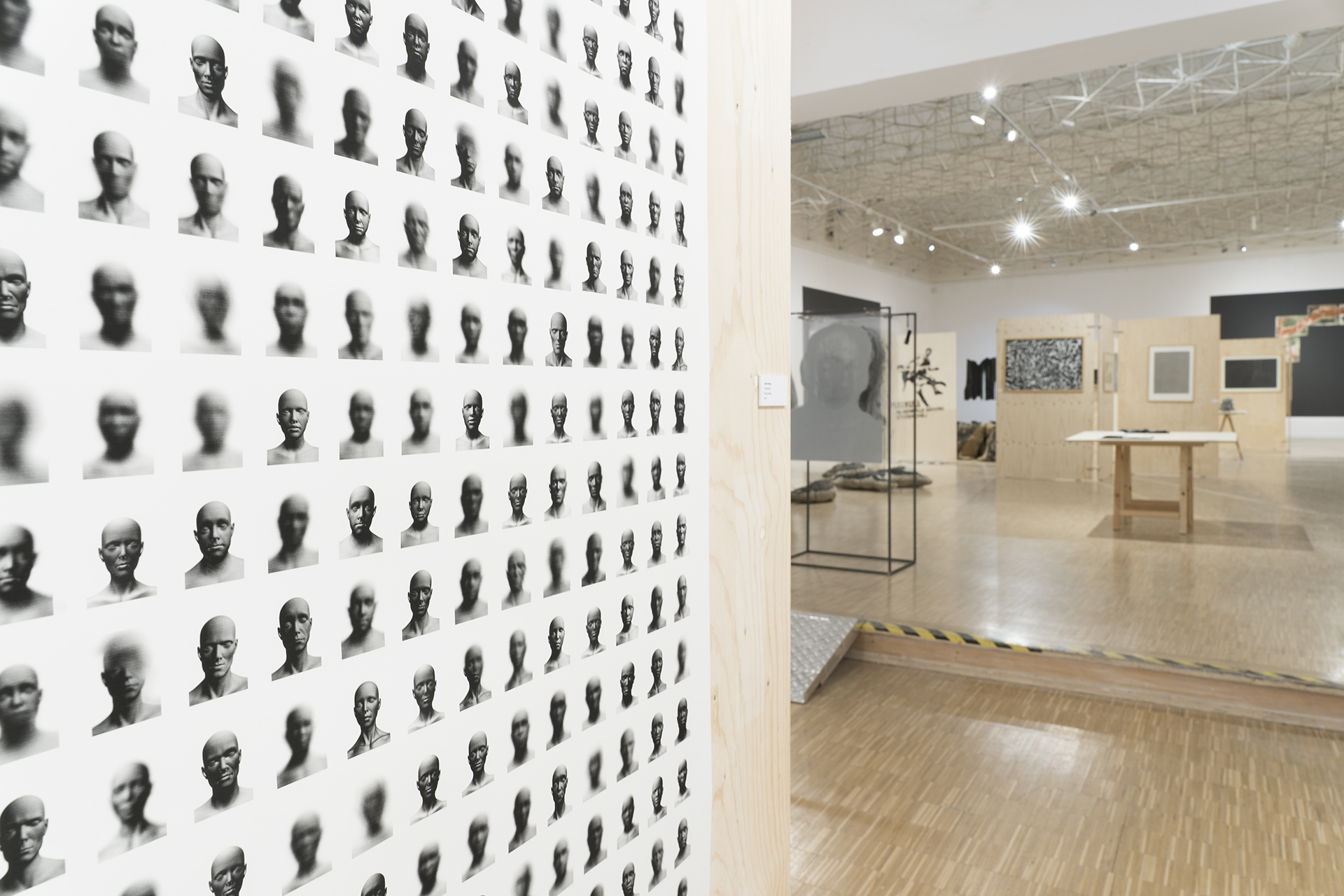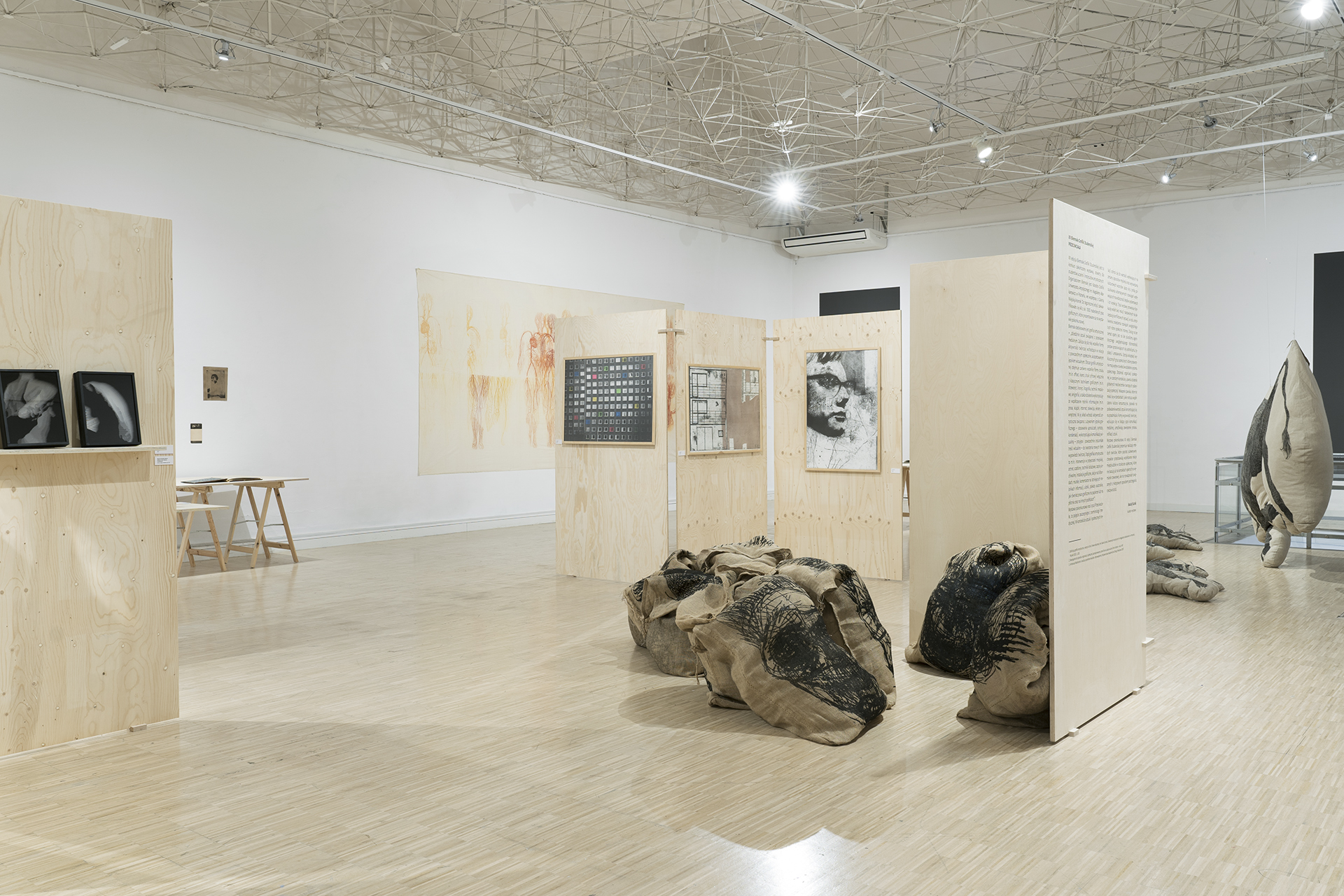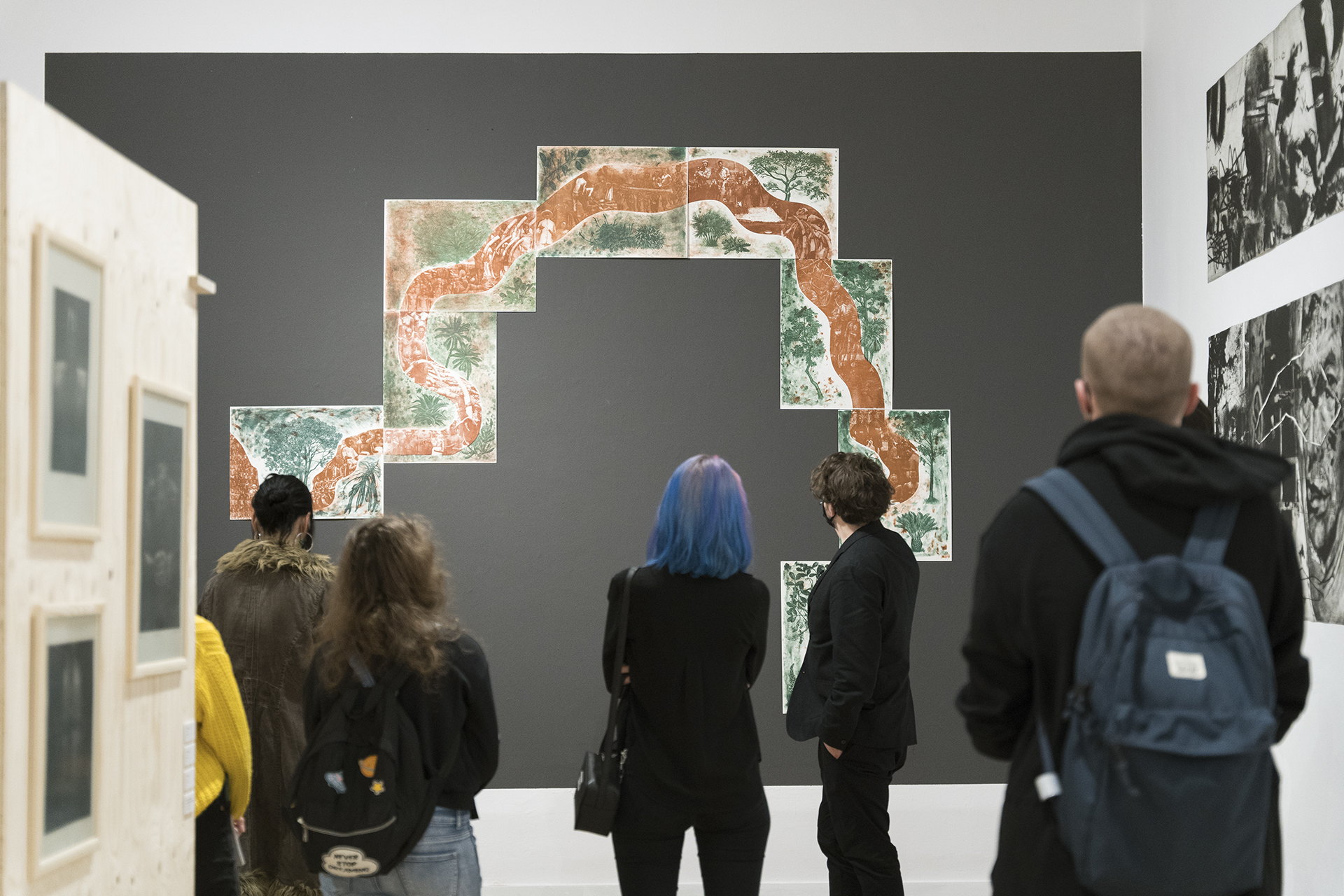Biennale of Graphic Arts, established in 1999, is a cyclical review presenting the work of artists of the young generation, active in the field of graphic arts. For some time, we have been implementing a new formula of the Biennale, which is adapted to changes in contemporary art and to the role of graphic statements in the context of social activities (activist movements).
The theme of the 13th Biennale of Graphic Arts, which will start on April, 21 this year in Poznan, is “Error” – an issue that criticizes the existing reality as defective and imperfect in relation to art, proposing instead improvements and transformations within culture and society.
At the exhibition, we will see dozens of works by young artists from Poland and Ukraine. It will not only be a broad review of the omnipresent graphic expression in our lives. The artistic and social value of the works will certainly transfer the often dramatic stories told to an aesthetic situation. The Biennale is then an event that broadens knowledge about the ubiquitous manipulations and emerging errors in reality.
Within the frames of this year edition a special contribution from the Universitas Pendidikan Indonesia will be presented. The artwork titled “Gotong Royong” resulted from the collaboration between students, professors and alumni in a printmaking studio of Faculty of Art and Design Education at UPI. The process of creating this work raises the idea of participatory, where every individual involved in it becomes an inseparable part of the ideas and works that appear. The term “Gotong Royong” means working together. This idea becomes the basic foundation of the work to represent the idea of working together to reduce “Error” rates.
Biennale of Graphic Arts
21.04 – 4.06.2023
Organizers:
Magdalena Abakanowicz University of the Arts Poznan
Faculty of Graphic Arts and Visual Communication
Co-organizers:
Galeria Miejska Arsenał Gallery w Poznaniu
Stary Browar
Partners:
Fundacja Nowa UAP
Miasto Poznań
Curatorial statement:
Error
An error occurs when an individual is not adapted to the social environment[1] or when the latter is subject to degradation. As a consequence, it is associated with the processuality which enforces activity aimed at restoring the state from before the individual’s crisis functioning or at searching for solutions to improve the living conditions. A complete return to the events of the past is ultimately impossible as facts are idealised, which makes us realise that there is no transplantation in social being[2]. Any attempt to restore history does not take into account the multi-element nature of complex situations in a changing historical system. Referring to the past without considering the present and the future leads to false ideas that serve, for example, to shape social myths which are used as ideologies to manipulate society. For example, the myths of the Great Empire, the Great Reich, a country of wealth stretching from sea to sea, or a country with a sphere of influence from Asia to the Elbe are based on erroneous, often fictitious assumptions aimed at creating a better future inspired by a modified past. The truth is quite different. The empire offers low socio-economic prosperity, while feudal exploitation in the country and the dictatorship of power in the authoritarian state do not bring common wealth. These myths serve, above all, extreme particularism. Deideologisation protects society against dangerous forms of thinking that destroy the existing order. At the same time, it is used to maintain an economic system based on social inequality. Individual people – as well as the social forms of their interference – should act ‘purely rationally’; then there will be no more genuine conflicts at all, nor will there be any free field of ideology; purely ‘objective’ differences succumb to purely ‘objective’ regulation through rational agreements, compromises, and so on. Deideologisation therefore means unlimited manipulability and manipulation of the entire human life. Therefore, this attitude towards reality essentially recognises only the existence of particular people.[3] This form of being is a hidden way of ideologising using the concept of freedom to emphasise the importance of particular values related to property. Manipulation is a common form of influence that uses positive and rational social values for personal gain. A strategy that disguises intent, usually based on famous scientific, philosophical and artistic ideas, makes counteraction impossible. An attempt to reveal its hidden functioning mechanisms leads to the emergence of opportunistic attitudes. It is believed that reality is exactly as it is represented by universal manipulation. Therefore, if you are a rational person, you cannot oppose – in the form of a sharp negation – this universality without also speaking internally for something that is wrong.[4] An error is deliberately used for manipulation and enables the introduction of changes or the maintenance of the existing situation. Adulteration treated as hidden facts can be appropriately used by decision-makers at the top of the economic ladder who are interested in maintaining the status quo of social organisation. These issues are discussed by Joseph E. Stiglitz, the American Nobel Prize winner in economics, who questions the theory of trickle-down economics. He draws attention to the specificity of economic investments in a globalised world (tax free zones, absolute additional values, investment mobility).[5] He reveals the systemic consequences of increasing social inequality. Actions supporting the growth of social polarisation are destructive as ‘the gains to winners are less than the losses to the losers’[6]. Neoliberal policies, particularly in economically less developed countries, which maintain disproportions in the economic status of societies, lead to the bending of facts. Controlling the less affluent part of society is possible with the use of simple, common solutions, which are often based on false information. The resulting ideologies usually do not solve the problem, but trigger primitive social responses giving short-term benefits. They arise unconsciously in a complex system (the society in itself), frequently causing the emergence of extreme nationalist and imperialist attitudes creating social conflicts. Focusing solely on particularism ignores social benefits, such as: ‘steady jobs and decent incomes for “the most numerous and the poorest class,” abundance and welfare for all, new modes of community …’[7]
The detection of an error can be a turning point in action. It limits life stagnation and also makes it possible to take action to improve the socio-economic situation. Marshall Berman, an American philosopher, points out that ‘[i]n this world, stability can only mean entropy, slow death, while our sense of progress and growth is our only way of knowing for sure that we are alive. To say that our society is falling apart is only to say that it is alive and well.’[8] Referring to art, creative activities that define the hitherto existing reality as defective and imperfect introduce improvements and transform the human environment. The positive impact of creativity on social development is possible after overcoming the obstacles resulting from the activity of the market, which can absorb even the most radical opposing attitudes.
This system requires constant revolutionizing, disturbance, agitation; it needs to be perpetually pushed and pressed in order to maintain its elasticity and resilience, to appropriate and assimilate new energies, to drive itself to new heights of activity and growth. This means, however, that men and movements that proclaim their enmity to capitalism may be just the sort stimulants capitalism needs.[9]
Any attempt to stop changes or merely simulate reforms is an ultimate fixation on the present time subjected to consumer culture. In this situation, artistic activities play a significant role, giving the opportunity to participate in the process of society’s development. At the same time ‘it is not about (actual) activated teleological processes, but only about trying to exert an appropriate teleological influence on causal processes’[10].
Maciej Kurak
[1] It is worth noting here that it is not about a simple conflict between society and an individual, which ultimately involves shaping individuality independently of society.
[2] Cf. György Lukács, Toward the Ontology of Social Being, Vol. 2, London: Merlin Press, 1978, p. 1084.
[3] Cf. Ibid., p. 1120.
[4] Cf. Ibid., p. 1151.
[5] Joseph Stiglitz, The Price of Inequality: How Today’s Divided Society Endangers Our Future, http://resistir.info/livros/stiglitz_the_price_of_inequality.pdf (accessed on 5 May 2022; online version; no pagination).
[6] Ibid., p. 33.
[7] Marshall Berman, All that is Solid Melts Into Air: The Experience of Modernity, London and New York:Verso, 1983, p. 73.
[8] Ibid., p. 95.
[9] Ibid., p. 118.
[10] Cf. György Lukács, op. cit., Vol. 3.
More information: https://grafikaart.pl/










- Author: o.petrenko
- Published on: 05.04.2023, 16:06
- Last edit: 19.04.2023, 12:57

